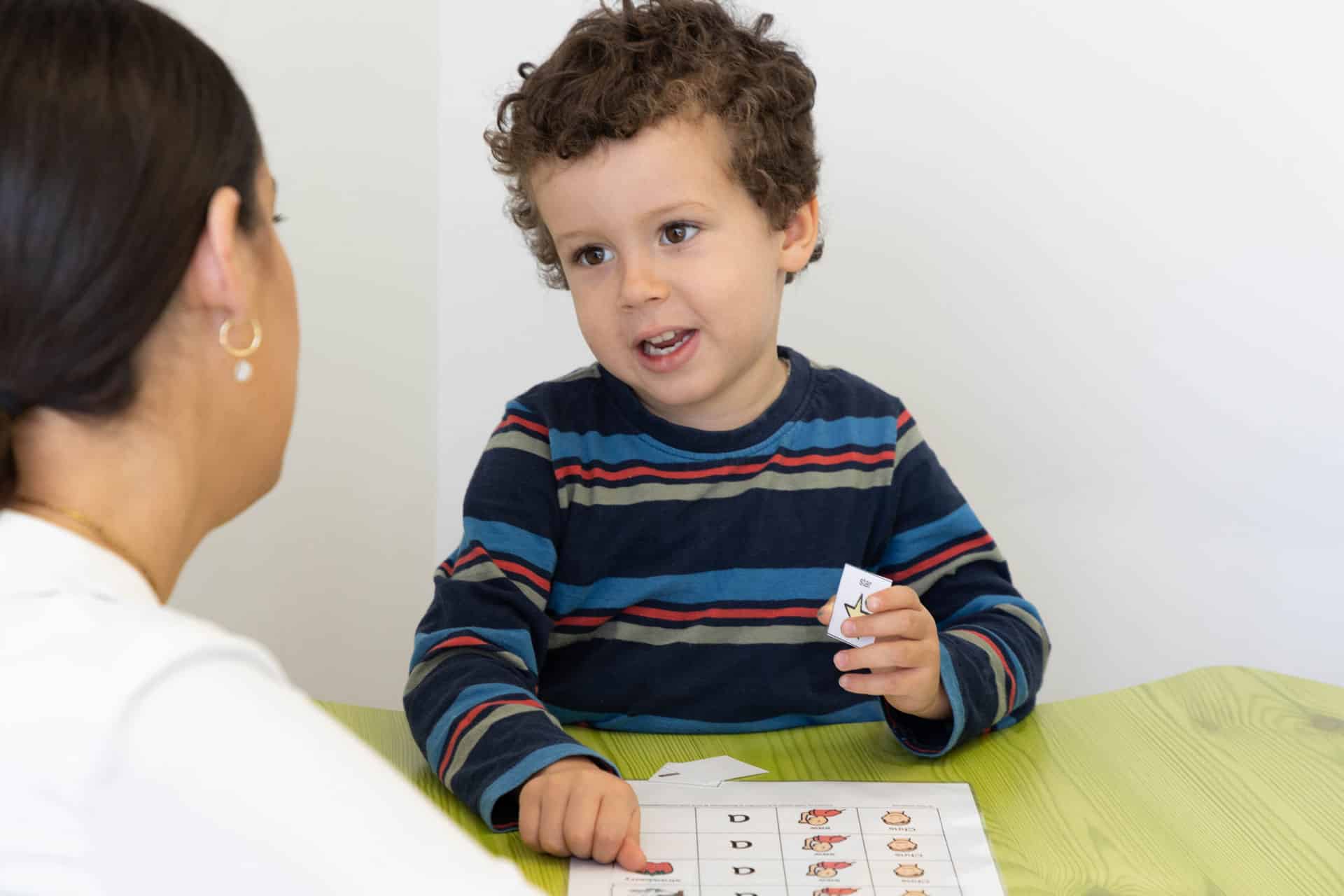Gestalt Language Processing is a type of language development where children learn language as whole phrases, also known as scripts. When a child develops language in this way, they move from whole phrases to single words. It is estimated that between 75 – 90% of children with Autism develop language in this way. However, it is important to note that it can also form part of typical language development – these children often move through the phases quickly, compared to children with Autism, who may spend longer in this stage of language development.
As part of Gestalt Language Processing, children go through a range of stages.
Stage 1: Echolalia. During this stage, the child memorises whole phrases and may later repeat them in a range of different contexts (also known as delayed echolalia). These scripts are often tied to different experiences or emotions. For example, a child may pick up the script ‘We can’t go over the bridge’ while watching Dora, and later repeat ‘We can’t go over the bridge’ when there is an object in their way while walking around a table.
Stage 2: Mitigated echolalia. During this stage, the child will begin to combine two scripts they have previously learnt to make a new utterance. For example, the child might combine ‘We can’t go over the bridge’ and ‘Let’s go play’ to create ‘We can’t go play.’
Stage 3: Single words. This is the stage where we begin to see single words break free from their scripts. Here, a child might begin to label different objects and pull single words out of previously learnt scripts. For example, rather than using the script ‘Let’s go play with the ball’, they may say ‘ball’.
Stage 4: Self-generated. This is the stage where the child begins to make their own, self-generated language. Here, we would expect to see an increase in grammatical errors that the child wasn’t making before as they begin to combine words by themselves. For example, they may say ‘He sit on the chair’ rather than ‘She is sitting on the chair’.
As speech therapists, it is important for us to recognise these stages so we can write goals that suit the child’s needs and plan a therapy approach that adapts to the child’s style of language learning. Doing this will not only support overall language development, but also scaffolds the child’s communication confidence and engagement with others in a variety of different activities.


